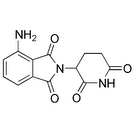Combination Actimid And Dexamethasone Regimen Is Promising For Relapsed And Refractory Myeloma Patients

The Journal of Clinical Oncology has reported that a combination regimen of Actimid (pomalidomide) and low-dose dexamethasone (Decadron) in a Phase 2 clinical trial was highly effective in the treatment of relapsed and refractory multiple myeloma patients.
Actimid belongs to a class of therapeutic agents called immunomodulatory drugs (IMiDs), which are molecular analogs of thalidomide (Thalomid). Thalidomide acts on myeloma tumors by inhibiting the growth of new blood vessels. In addition to this mechanism, IMiDs prevent the development of abnormal tissue masses called neoplasms and induce programmed cell death. Data from Phase 1 clinical trials suggest that Actimid is the most potent of IMiDs, which include Revlimid (lenalidomide) and thalidomide.
The present clinical trial observed 60 patients for nearly a year. Actimid was administered orally at a dose of 2 mg daily on days 1 through 28 of a 28-day cycle. Dexamethasone was administered orally at a dose of 40 mg daily on days 1, 8, 15, and 22 of each cycle. Patients also received 325 mg of aspirin once daily to prevent blood clots, a known risk in multiple myeloma patients that increases with IMiD therapy. The median number of 28-day cycles was seven.
The regimen prompted a response in sixty-three percent of patients, including a complete response in five percent, a very good partial response in 28 percent, and a partial response in 30 percent. Responses were seen in 40 percent of patients unresponsive to Revlimid, 37 percent of patients unresponsive to thalidomide, and 60 percent of patients unresponsive to Velcade. The median progression-free survival time was 11.6 months.
The most common severe side effects – those graded “three” or “four” – included anemia, low platelet counts, and low white blood cell counts. These higher-level grades indicate serious and potentially life-threatening side effects that affect daily life and require medical attention or hospitalization.
The study’s promising results warrant further evaluation of using Actimid in combination with dexamethasone and other novel agents. More specifically, the researchers will investigate the effect of Actimid and low-dose dexamethasone in Phase 2 trials for patients unresponsive to Revlimid and Velcade to better define response rates in these populations.
For more information, please read the original study published in the Journal of Clinical Oncology.
Related Articles:
- None Found

This is another big step forward for myeloma treatment.
The issues of side effects are still there though seem somewhat reduced compared to Thalidomide, Velcade and Revlimide. Side effects still need to be addressed.
I await the future trials results with hope.
Sid.